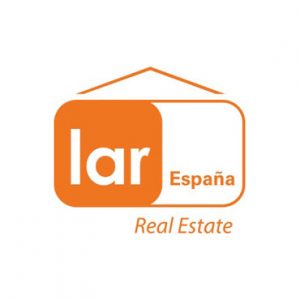Ten years mean a lot. Halfway between Lorca’s ‘so let five years pass’ and Gardel’s ‘twenty years is nothing,’ in the life of a publicly traded company, reaching ten years represents successfully overcoming many maturity, management, and market effectiveness exams. On March 5, 2024, the socimi Lar España will celebrate its tenth anniversary. We were pioneers in the sector, so we will open the round of commemorations among the socimis listed on the Continuous Market.
We were the first IPO since 2011. The previous real estate company that went public had done so seven years earlier. Lar España was born “ex novo” through a placement among institutional investors for a total amount of 400 million euros, raised with the express purpose of investing in tertiary rental properties.
At the bell-ringing ceremony at the Stock Exchange Palace, our president, José Luis del Valle, made the first note of that differential corporate model: “We are the first socimi to be listed on the four Spanish stock exchanges. We will invest in the Spanish real estate sector, especially in commercial properties, to add value with a long-term management approach. We believe that is possible with the current maturity levels of the market. We will achieve attractive returns, and for that, we have chosen the socimi figure and Grupo Lar as the exclusive manager. We believe it has experience in the management and promotion of real estate assets. We will be the reference company in the Spanish real estate world of socimis.”
Since its incorporation, Lar España has deviated from the usual tertiary real estate model, which focused on the location of assets. It preferred to focus first on the quality of the assets themselves and then on a case-by-case selection, without acquiring portfolios, and almost always becoming the exclusive owner. The goal was to lead the retail real estate industry thanks to the size of its portfolio, the quality of its assets, and the efficiency of its management model. The constant improvement in these three objectives has allowed us, in turn, to always maximize the value added to shareholders, tenants, and end customers.
In these ten years, few things have had as much impact on a company as its financial and non-financial information; clarity both in the numbers and in corporate governance and environmental, social, and governance (ESG) policies. Transparent governance, with recognized independent directors open to different stakeholder groups, is an essential requirement to then advance in environmental care and social responsibility.
The supervision of the Board and its committees has ensured that transparency; shareholders feel doubly supported by the organization. Good financial and ESG information has allowed us more and better sustainable initiatives, which in turn have positively impacted the terms and scope of our financing.
In the real estate sector, considered suspicious since the global financing crisis of 2008, transparency, combined with the figure of socimis, has become an efficient and guaranteed response to boost the professionalism, development capacity, and profitability of the sector.
If this is true in the real estate sector, in the retail segment, it has become an important added value. Due to its integration with society and urban development where they are located, shopping centers and retail parks have become sources of progress, development, digitization, and social inclusion. When all these values are channeled and promoted through transparency and good corporate governance, the results, commitment, and development become much more cross-cutting and efficient.

